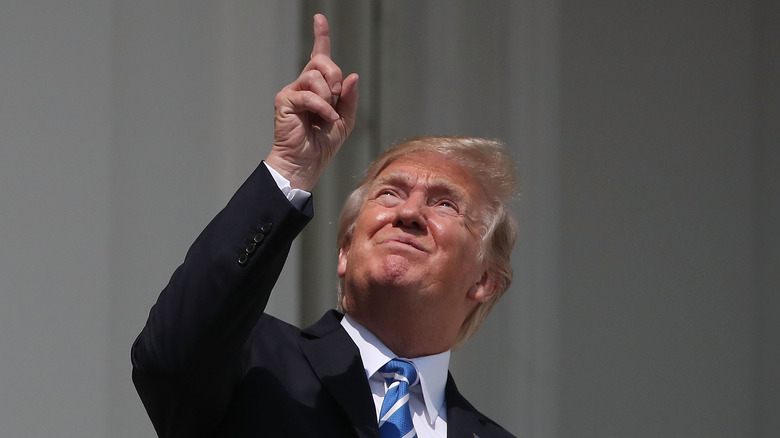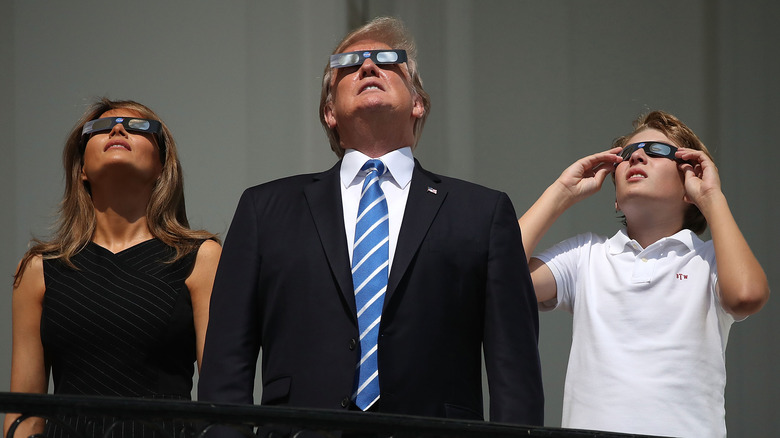Donald Trump Made A Major Faux Pas During The 2017 Solar Eclipse
Parts of 13 states are set to experience a total solar eclipse on April 8, 2024, with several others due to be able to see a partial eclipse. The last time a total solar eclipse was visible in the U.S. was back in 2017 when Donald Trump was president. He quickly became the poster child of what not to do during an eclipse: Look at it without eye protection. Donald watched the eclipse from a balcony of the White House, where he was joined by his wife, Melania Trump, and their son, Barron Trump. The controversial politician was pictured taking a quick peek at the sun without wearing any eclipse glasses — add that to the list of Donald's awkward moments caught on camera.
He did so for "less than a second," as a CBS News report clarified at the time, but it was long enough for the moment to be captured on camera and preserved in the public consciousness forever. The pics of Donald squinting up at the sun quickly went viral and spawned tons of jokes on social media. The day after the 2017 eclipse, the New York Daily News even ran the front page headline "Not too bright!" alongside a photo of Donald (via X, formerly known as Twitter).
Donald Trump's actions could have caused permanent damage
In footage of the moment when Donald Trump looked up at the sun during the solar eclipse, in 2017, someone, reportedly a White House aide, shouted "Don't look!" seemingly as a reminder to the then-president (via The Guardian). They were right to warn Trump. Looking at the sun during an eclipse, even for a small amount of time, like Trump, could be enough to cause permanent eye damage, as ophthalmologist Dr. Matthew Gorski, M.D., warned Fox News Digital. Of course, the longer you look at the sun during an eclipse, the more likely you are to do potentially irreversible damage to your eyes.
"It is very possible that you can wind up with a permanent blind spot from viewing the eclipse without the appropriate protection," Dr. Avnish Deobhakta, M.D., a vitreoretinal surgeon at New York Eye and Ear Infirmary of Mount Sinai in New York City added. It's unclear whether Trump suffered any damage from the glance, but it's not something to try at home regardless.
The eye protection you need is far beyond your everyday sunglasses and looking directly at the sun through a camera lens, including on your phone, which can also end up hurting your eyes and your camera. NASA recommends confirming that the eclipse glasses you use meet international safety standards first. The American Astronomical Society has a list of approved suppliers.

